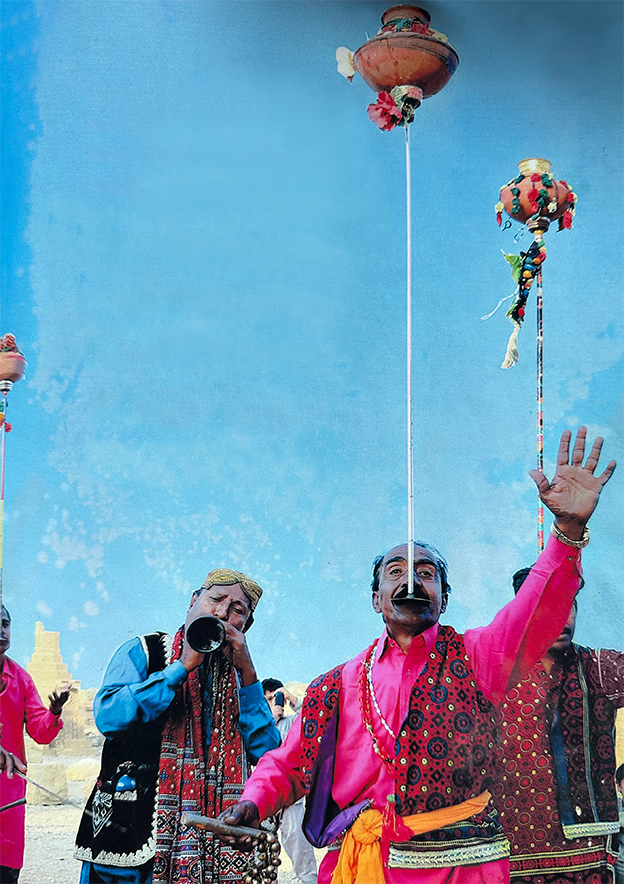ISLAMABAD: Pakistan remained one of the most talked-about countries on international news forums in 2021 for all the right and wrong reasons. From gruesome murders to assault of women, and the Organization of Islamic Cooperation (OIC) summit to cricket, all kept people glued to their television and computer screens.
As we inch toward the year-end, let’s have a look back at what were the top news moments in Pakistan in 2021.
The grisly murder of Noor Mukadam
On July 20, just when the Muslim-majority Pakistani nation was celebrating Eid, Noor Mukadam, the 27-year-old daughter of a former Pakistani diplomat was found beheaded in an upscale neighborhood in Islamabad that shook the nation. The victim was the daughter of Shaukat Mukadam, a former Pakistani diplomat.
The prime suspect, Zahir Jaffer, was arrested at the crime scene on the day of the murder. The horrifying details of the murder drew furor on the Internet and social media, with #JuticeforNoor, #NoorMukadam and #ZahirJaffer trending on top.
The murder trial that began in October is one of the most closely watched in Pakistan’s recent history. At his indictment hearing in October, Jaffer admitted he had committed the “crime.”
Others charged in the case include Jaffer’s parents, Zakir Jaffer and Asmat Adamjee, three of their household staff, Iftikhar, Jan Muhammad and Jameel, and six workers from Therapy Works, a counseling center from where Jaffer had received certification to become a therapist and where he had been receiving treatment in the weeks leading up to the murder.
Sialkot lynching of Sri Lankan national
Priyantha Kumara, who worked as a manager at a factory in the city of Sialkot, was attacked and killed by a Muslim mob on December 3.
The crowd also publicly burned his body over what police have said are accusations he desecrated religious posters.
Blasphemy is considered a deeply sensitive issue in Pakistan and carries the death penalty. International and domestic rights groups say accusations of blasphemy have often been used to intimidate religious minorities and settle personal scores.
OIC Summit in Islamabad
Pakistan on December 19 hosted the 17th Extraordinary Session of OIC’s Council of Foreign Ministers on Afghanistan, called by Saudi Arabia, in Islamabad. The purpose of the summit was to rally Muslims and other countries and international institutions to the aid of Afghanistan.
Around 70 delegations from OIC member states, non-members and regional and international organizations attended the summit. Nearly 20 delegations were led by foreign ministers and 10 by deputies or ministers of state. The foreign ministers of Saudi Arabia, Tukey, Azerbaijan, Iran, Oman, Kuwait, Indonesia and Malaysia were present at the Parliament House for the summit.
The OIC agreed to establish a “humanitarian trust fund” to channel assistance to Afghanistan, appoint a special envoy on Afghanistan and work together with the UN in Afghanistan.
Minar-e-Pakistan assault of woman
On August 14, when Pakistanis were celebrating the Independence Day, a young woman TikToker, Ayesha Akram, was assaulted by a mob comprising hundreds of men at the Minar-e-Pakistan monument in Lahore and caused a major public outcry.
Videos circulating on social media showed people tearing the clothes of the woman who was there to shoot a TikTok video. Police initially registered a case against 400 men and about 104 suspects were arrested.
The incident took a number of dramatic turns when Akram’s audio message with her friend, Amir Sohail also known as Rambo, surfaced on the Internet about the apparent extortion of money from the suspects.
Gwadar protests
In Pakistan’s Gwadar port city hundreds of people staged a month-long protest against the government for not doing enough to prevent “illegal trawling” in the Arabian Sea, while pointing out the practice was depriving local residents of a major livelihood source.
According to the protesters, over 2,000 trawlers from the neighboring province of Sindh have been regularly operating near the Gwadar seashore, though the provincial administration has not done enough to stop the practice.
Gwadar has been central to the multi-billion-dollar China-Pakistan Economic Corridor (CPEC) that promises to secure the economic well-being of the people by enhancing regional trade and connectivity.
The protesters later called off the sit-in in December after Balochistan Chief Minister Abdul Quddus Bizenjo visited the protest site and signed an agreement that acknowledged the government’s willingness to meet their demands.
Pakistan broke World Cup jinx against India
One of the most awaited moments in every Pakistani’s life was to watch Pakistan win against India in a cricket World Cup.
On October 24, Pakistani skipper Babar Azam and wicketkeeper Mohammad Rizwan smashed unbeaten half-centuries as Pakistan crushed India by 10 wickets to register their first World Cup win over the archrivals in the high-voltage Twenty20 World Cup match in Dubai.
Malala Yousafzai’s wedding
Pakistani Nobel Peace Prize laureate Malala Yousafzai on December 9 announced her marriage to Asser Malik, making her followers flood her with congratulatory messages.
Yousafzai, who survived an attempt on her life in 2012 by a Taliban gunman in her native town of Swat, shared the pictures of the event across her official social media accounts. Her announcement on Twitter and Instagram collectively amassed over 650,000 likes, with many celebrities and notable names sending her best wishes on her big day.
“Congratulations, Malala and Asser,” Canadian Prime Minister Justin Trudeau wrote under Yousafzai’s announcement. “Sophie and I hope you enjoyed your special day – we’re wishing you a lifetime of happiness together.”




















